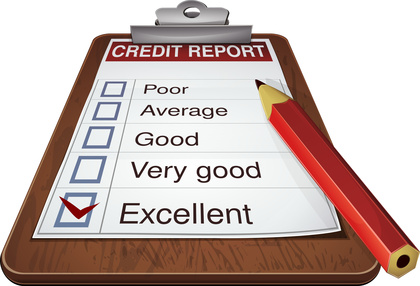If you enter into an Individual Voluntary Arrangement (IVA) or a Debt Management Plan or go the Bankruptcy route, your credit worthiness will inevitably suffer.
You have acknowledged that you are unable to pay your debts as they fall due and in the case of IVA or Bankruptcy that you are insolvent. Your creditors become aware that in an IVA or Bankruptcy you will almost certainly not repay all of your debts to them. If you are in a Debt Management Plan, you are unlikely to be able to repay your debts for a long time – perhaps much longer than the original contractual term.

Creditors use credit reference agencies such as Experian, Equifax and Callcredit to keep and maintain records of the repayment performance of borrowers. The business of the credit reference agencies is to record such data on the credit files of borrowers and sell it to any interested party, provided they have a consumer credit license. Thus banks, mortgage providers, HP providers, credit card providers and even trading creditors can access your financial records in regard to borrowings. If you have a good credit history, then these records can facilitate your further borrowing at preferential rates. Access to and publication of such personal financial data relating to insolvent individuals is not prohibited by the Data Protection Act. For a small fee you or any private individual can obtain his or her own credit file and, in certain instances, a private individual can access the credit file of another individual such as when the two individuals concerned are co-habiting or even just living in the same house.
If you default however in repaying any of your borrowings, creditors can also create records of your failure. They do this by registering a default on the relevant account and provide the relevant information to the credit reference agencies. Even before you enter an IVA or a Debt Management Plan or become bankrupt, some of your creditors may already have registered such a default where you have failed to comply with the terms and conditions of credit agreements, usually by failing to make contractual repayments. Such records are also accessible by the parties mentioned above.
In IVA and Bankruptcy, defaults remain on the credit file for six years from their date of registration. In Debt Management Plan they can remain on the file up to six years after the debt has been repaid in full. In an IVA of five years duration, borrowers can expect the default to be removed from their credit file about one year after completion of the IVA, assuming the defaults were registered around the time the IVA commenced. In Bankruptcy, the defaults will usually be removed about five years after discharge from bankruptcy which nowadays usually lasts one year. If in a Debt Management Plan of say eight years duration, borrowers may have the defaults registered for a further six years.
A standard condition of an IVA is that the debtor does not acquire any credit or enter into any credit agreement without the express permission of the supervisor, who in turn may have to obtain the express permission of the creditors. There are usually some practical exceptions to this, which are anticipated and detailed in the IVA proposal. For example, it may be permitted to incur credit in regard to some utilities such as water charges, electricity, gas and telephone but a monetary ceiling is normally imposed on such items of expenditure e.g. no more than £500 credit may be incurred in respect of such items. Maintaining a current account, provided it has no overdraft facility, is also usually allowed. A debtor will also be allowed to continue servicing secured borrowings such as a mortgage or car HP. The credit file will record how such credit activities are carried out. It is important to maintain payments in respect of all such forms of credit allowed by the IVA so that a good track record on such credit would be viewed positively by creditors when the IVA is complete.
In considering any request for credit facilities following the successful completion of an IVA, creditors will naturally check on a debtor’s credit history via the credit files. Credit may be refused by some lenders if the credit file still carries default records. However, six years from the dates of the defaults, the credit reference agencies should automatically update the credit files and remove all references to defaults. If this has not been done, the debtor can request the credit reference agencies to do so and in the absence of a satisfactory response from them, can invoke their complaints procedures to deal with the matter and so begin to repair a damaged credit rating.